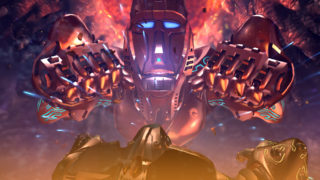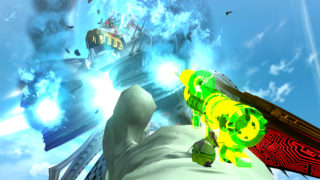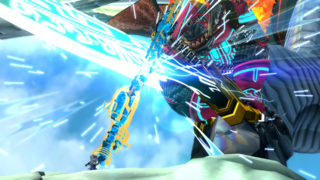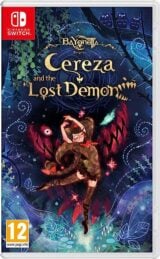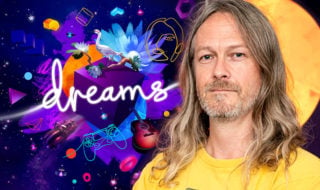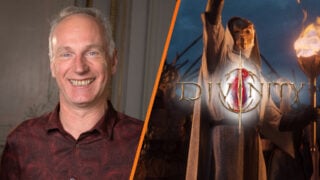Really fed up with insects which never read my posts/header pic and just keep posting . THAT’S WHY I’m telling u not to post me in languages other than Japanese. If u break rules, that means u r brainless insect and will be blocked immediately. BE CAREFUL.https://t.co/FXlUj9gceN
— 無職 神谷英樹 Unemployed Hideki Kamiya (@HidekiKamiya_X) July 3, 2019
Interview: Platinum explains why it’s crowdfunding The Wonderful 101 Remastered
Inaba and Kamiya on crowfunding, Nintendo and more

PlatinumGames is heading to Kickstarter with its latest project, the much-requested The Wonderful 101 Remastered for Nintendo Switch, PC and PS4.
The crowdfunding project is intriguing for many reasons, not least because the original game was published and co-owned by Nintendo (according to reports the IP has reverted to Platinum, but it wouldn’t confirm when asked).
It’s also the Bayonetta developer’s first foray into self-publishing, an ambition it’s had for many years.
Despite creating countless critically-lauded IPs during its first decade, Platinum is still heavily reliant on partnerships with other companies. The Bayonetta and Vanquish IPs are owned by Sega, while Nintendo co-owns Switch exclusive Astral Chain.
More PlatinumGames
Speaking to VGC in Tokyo ahead of the Kickstarter, studio head Atsushi Inaba said that the Wonderful 101 campaign was a way for Platinum fans to help the studio become more independent.
Famed designer Hideki Kamiya said he was simply happy to be able to revisit a game which he felt frustrated didn’t reach a wider audience the first time around on Wii U.
Kamiya and Inaba were talking to VGC at Tokyo Game Show in September 2019, with additional answers added at the Kickstarter’s launch.
You must be relieved now you can finally stop fielding questions about whether The Wonderful 101 is coming to Nintendo Switch.
Inaba: (Laughs) We’ve been hinting at it for over a year so of course we’ve had a lot of people asking about it. The fact that so many people are asking makes us very pleased that they’ve not forgotten about this game. They’re still interested in this game and it’s relevant so we’re very happy to be a part of this project.

How did the new project come about? You’ve suggested in the past that you’ve been in discussions with Nintendo for a while about re-releasing the game.
Inaba: This is a game that we’ve always wanted to revive. Unfortunately, it was not as successful on Wii U as we wanted it to be, so we spoke to Nintendo about what we could do.
When you talk about ‘success’ for a video game, that can mean a lot of different things. In particular, it can mean that the game released on multiple platforms, so that’s what we were thinking for the remaster: we wanted it to be on more platforms than just Nintendo.
So we spoke to Nintendo about it and Nintendo said basically, ‘if you want to bring it to another platform, we’re fine with that. But that’s up to you – it’s your effort.’
PlatinumGames is a game developer and not a publisher, so we do not have the ability to publish games ourselves. That’s why we would like to reach out to all of our fans and get the support to make this project a reality.
Can you elaborate on the status of the IP? Does Platinum now own it?
Inaba: Unfortunately, we cannot comment on this matter at this time.
It seems surprising that Nintendo has allowed the game to appear on other platforms. Why is that?
Kamiya: We don’t really know! (Laughs) They were really nice about it.
Inaba: Platinum has a really good relationship with Nintendo. We’ve been with Nintendo from the very beginning and we’ve released a lot of games with them, including Astral Chain which recently released and was a big success. So I think it’s largely thanks to our relationship with Nintendo that they kind of decided to give us a break. I think it’s our history that it’s largely attributed to. We were quite surprised ourselves. This is usually not something that is allowed in the games industry. We see it as a very unique opportunity that Nintendo has given us and we’re pleased to have it.
“We were quite surprised ourselves. This is usually not something that is allowed in the games industry. We see it as a very unique opportunity that Nintendo has given us and we’re pleased to have it.”
You seem to have been very lucky with your publisher relationships, with Sega allowing you to make Bayonetta sequels and so forth. Or is it that we don’t see all the ones who say ‘no’?
Inaba: Yeah of course relationships are important, but there have been times when things went totally south too! (laughs) I feel that with the IPs that we’ve made and as action game creators, we are approached by a lot of other people. As a developer, this is what I feel our appeal has been. We’re very thankful for all of the collaborations we’ve been involved in.
Why Kickstarter? Is this project viewed as a risky proposition?
Inaba: There are two main factors. Firstly, although PlatinumGames might be perceived as this great, flashy company, the fact is we are just a developer and do not have the ability to self-publish. So in that right, we would like to get support from our fans to bring this opportunity to life and reach a lot of platforms.
The other reason is that we really want to gauge how popular this game really is. In terms of the stretch goals and how much funding we get, we are able to gauge the public’s opinion of the game. While we do feel very confident in the game, we’re interested to see exactly how far it can go.
That being said, yes there is a lot of risk involved. We’re confident in it, but if we can’t even reach the original main goal that will present a big failure for us. We need help to self-publish and show us their reaction towards Platinum and the game itself.
You’re aiming to release the game in April. If it’s so close to completion, why do you need Kickstarter?
Inaba: Kickstarter has various sides to it, and I think anyone would agree that its strongest reason for existing is to ‘help people gather the funds they need to finish some kind of project.’ At this point, PlatinumGames has become a mid-size company, and has also received an investment from Tencent. So I can completely understand why people would question why we would need to gather any more money.
The first thing I’d like everyone to understand is that although our company has slowly started to grow, it doesn’t necessarily mean that we can suddenly do everything we’ve always wanted to. I’ve always wanted to re-release The Wonderful 101 in some form. Since the game’s release, I’ve constantly put forth effort year after year, without ever giving up. And this is all because I felt there was an imbalance in the number of people who actually got to play the game compared to the amount of passion and quality that was put into creating it.
But up to this point, my efforts failed to bear any fruit – and this is because as a professional, it’s impossible to completely remove the “business” aspect from game development. But I feel that Kickstarter’s crowdfunding capabilities allows us to leap past such boundaries and connect directly with users in order to let them decide what value our content truly has. It’ll give us a more accurate perception of many things, including realistic expectations that the users have for the content.
Creating this campaign will also allow us to send a variety of different rewards out to users who back the project. This campaign isn’t just going to allow us to port the game – it’ll also allow us to create new, additional content for the game based on the level of funding we receive.
I think that’s where the fun and charm of Kickstarter campaigns truly lie – in the ability to directly look at user expectations and support, then turn that into actual content. To us, there’s nothing more important than user feedback and support, and I’m confident it will be the driving force that allows us to leap into the world of self-publishing. In closing, I would just like to reiterate: whether or not we’re able to succeed with The Wonderful 101’s Kickstarter will mean a great deal to not only me, but PlatinumGames as a whole.
“The first thing I’d like everyone to understand is that although our company has slowly started to grow, it doesn’t necessarily mean that we can suddenly do everything we’ve always wanted to.”
How much of a challenge is it to grow Platinum to the position where it’s able to self-publish?
Inaba: One of the biggest challenges in our history has been continuing to make great games that people enjoy. We feel that if we screw up, it can have a big impact. So over the course of our history we’ve continued to make good enough games that they’ve received a good following, and now we feel we’ve cleared that first stage and put ourselves in a position to establish ourselves as a unit that can do this.
If possible, we would like to do more self-publishing in the future. That is ideal. But of course it’s going to be on a case-by-case basis, based on the title and the IP itself. If it’s an IP that we’ve established ourselves then we’d like to do that, but as you know we often collaborate with other companies. Looking forward yes, we would like to continue to grow and do this kind of thing as often as possible.
Last year you told us about two original IPs Platinum has in development. With your desire to self-publish, might you have to crowdfund those as well?
Inaba: For this particular project, all the factors seemed to come together for crowdfunding to make sense. The fact that we wanted to revisit the game, the fact Nintendo allowed us to do it and the timing was good. So we consider this a very unique case.
Moving forward it’s going to be case-by-case, depending on the reaction to this project. There are situations where we might be collaborating as well, which is out of our hands. But we definitely do want to move towards self-publishing in the future.
Does the performance of this Kickstarter have any bearing on your position to be able to remain independent and self-publish in the future?
Inaba: Yes, it’s very important for Platinum. If this is a big success, that allows us to confirm that we have a large fanbase and we can be confident in moving forward with projects in the future. We’re trying to move forward to the next stage and hopefully with everybody’s help and support that’s what we can do.
I feel that PlatinumGames is often misconceived by the public because we are just a developer and often the IP is owned by another company. Usually a company will approach us and we will make the world, the characters and everything, but we don’t necessarily publish. We want this opportunity to gain the support of our fans and do something ourselves.
A lot of fans are probably now wondering if bringing your other Nintendo IP, Astral Chain to other platforms could one day be a possibility?
Inaba: That’s a question we were expecting to come a lot earlier! (Laughs) But you’re actually the first person to ask.
In the case of Astral Chain, it’s an IP that’s owned half by Platinum and half by Nintendo. So right now it just came out and it’s too early to say. For the time being we’re just hoping that it’s a success for the Nintendo Switch and we’ll see how it goes from there.
You’re not ruling it out then?
Inaba: Ultimately it’s Nintendo’s call, not ours. They own the publishing rights to Astral Chain so really we have no say in that matter. We consider The Wonderful 101 an exclusive case.
“In the case of Astral Chain, it’s an IP that’s owned half by Platinum and half by Nintendo… For the time being we’re just hoping that it’s a success for the Nintendo Switch and we’ll see how it goes from there.”
Why do you think The Wonderful 101 wasn’t a hit the first time around, and why were you determined to revisit it?
Kamiya: I don’t want to necessarily attribute it to one particular reason. But out of a lot of our titles I feel that The Wonderful 101 may have been the most difficult game to identify for users. For example, Bayonetta is clearly an action game but Wonderful 101 is kind of a unique case. Plus there’s the fact that the Wii U was not as successful as some other platforms, but we’re not pinpointing it on one particular thing.
Personally speaking, I like all of the games that I’ve made. But The Wonderful 101, in terms of the volume of content, feels like one of the largest games that I’ve made. I’m very confident in this game and I want it to reach as many people as possible. I feel that the Wii U release did not reach that, so I consider it a special case to be able to revisit it via a crowdfunding campaign. I want this new version to reach as many people as possible.
Did you feel frustrated that the game didn’t reach a wider audience the first time around?
Kamiya: I’m very confident in the game, so it was frustrating, but I wanted to use this unique opportunity to revisit it and change some things, such as making some elements more user-friendly, although the core content remains unchanged. This opportunity has given me the chance to make those changes, so in that way I’m very happy.
Could you elaborate on the exact changes you’ve made to the game?
Kamiya: Basically, I wanted to take a lot more care to modernise it. This is a detailed thing, but for example when a character levels up I wanted it to have a little more meaning. In the original, users were probably a bit confused when a character levelled up and didn’t understand what they could do. I wanted players to understand the more detailed things in the game so that they could have an overall more enjoyable experience.

How have the touch screen mechanics translated to the new platforms?
Kamiya: The Switch version will have no changes in portable mode, since it already has touch screen ability. On PlayStation 4 and other platforms you will use the stick, however I actually prefer this. Whenever I play the game, that’s what I like to use. Otherwise, there are no major changes.
On the original Wii U version you had two screens, but there was an option to play the game with all information on one screen. At the time of making the Wii U version, that was a feature that we implemented right at the end and I didn’t have much time to tweak it. With these new versions I’ve had the opportunity to make small changes, for example moving the screen to a different corner.
Kamiya-san, you’re now working on a number of different projects including this, a new IP, and previously supervising Astral Chain. How are you finding working across lots of projects, instead of focusing on just the one title?
Kamiya: In the case of Astral Chain, I had my responsibilities but it was actually directed by Taura-san. So I’m very much looking forward to revisiting Wonderful 101 and taking charge of that.
While I do enjoy being part of a lot of different projects – for example, in the case of Astral Chain, if Taura-san had a question I would give him advice – as much as possible I like to be in the thick of it directing myself. I do like being in charge, calling the shots and all that stuff.
Come to think of it, I haven’t directed anything in a while! (Laughs) Since Scalebound, anyway. I just want people to know that I haven’t retired! I’m still working. I’m always thinking of new ideas for new IPs and things like that.
You mentioned in an interview a few years back that Inaba-san often needed to shout at you in order to get the biggest creative decisions made. Is that still the case?
Inaba: I had to say a lot of things during Viewtiful Joe!
Kamiya: It was endless.
“The fact that Astral Chain is very successful is good, but it’s hard to say whether a game can ‘save’ us as a company or not. We just want to continue to make the best games possible.”
What can you tell us about how Astral Chain has done? It seems like it’s been a big success both critically and commercially.
Inaba: Of course we are very, very pleased with its success. In particular, the feedback that we’ve gotten from reviews is very high. We hear that it’s been sold out in a lot of places, so we’re very pleased. We make the game, we don’t sell the games, so to get that kind of confirmation from users makes us very happy.
You famously commented that Nier: Automata’s success ‘saved’ the company. Do you think Astral Chain could be equally valuable for the company?
Inaba: It’s a very difficult question to answer. We look at all of our games as equals and we take the good and the bad. In the case of Scalebound being cancelled and the timing of Nier being a big success, we were very happy about that. The fact that Astral Chain is very successful is good, but it’s hard to say whether a game can ‘save’ us as a company or not. We just want to continue to make the best games possible.
Finally Kamiya-san, we thought we would take the opportunity to ask you some questions which, according to your own Twitter rules, would get us blocked from your account.
Kamiya: (Laughs) The biggest thing for me is that people don’t properly read my previous or pinned tweets before asking a question. I may have just answered something and then somebody comes along and asks me again, so they’re banned!
Firstly, we’ve been conducting this interview in English, so that would see us banned.
Kamiya: When it comes to English, my profile says, ‘no questions in English’, so if somebody does that, I know they’ve not read the rules, so they’re banned! Basically, do your homework before asking me a question. If you don’t do your homework, you’re getting banned! Actually, English isn’t so bad, but read my previous answers before asking a question!
According to your rules, a request also gets you banned.
Kamiya: Oh no, requests are OK! Just not in English (laughs)
‘No advice’ is another of your Twitter rules, so we’d like to suggest a Famicom-themed reward tier for Wonderful 101.
Kamiya: Banned!


